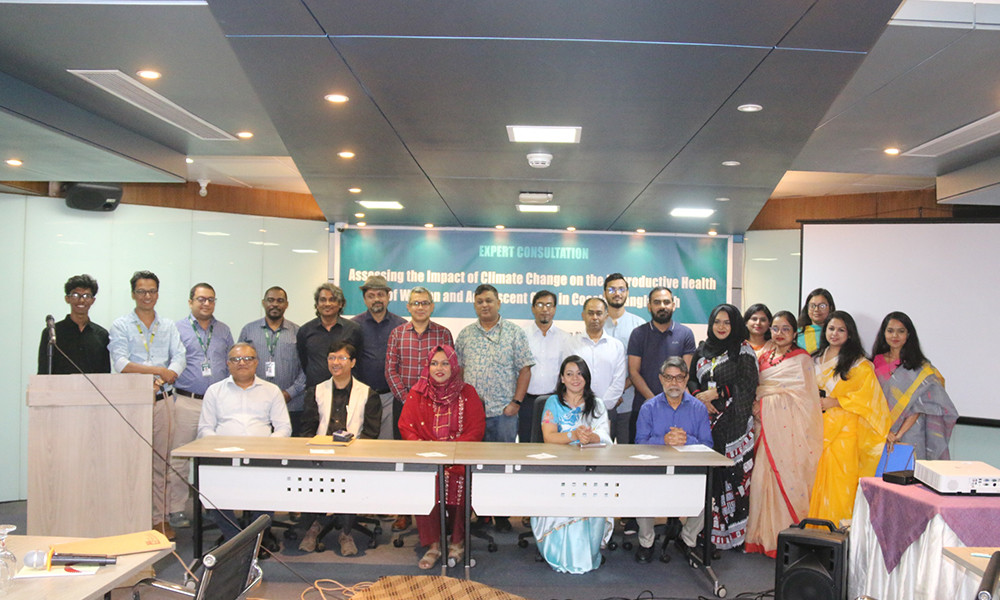Staff Correspondent
Published:2025-06-03 17:04:05 BdST
CPRD probes climate change impact on women’s reproductive health
The Centre for Participatory Research and Development (CPRD) has initiated a collaborative effort to examine the impacts of climate change on women's and adolescent girls' reproductive health in coastal Bangladesh.
A seminar titled “Assessing the Impact of Climate Change on the Reproductive Health of Women and Adolescent Girls in Coastal Bangladesh” was held on Tuesday at the BRAC Centre Inn, drawing attention to a critical yet underexplored public health issue.
Md. Shamsuddoha, Executive Director of CPRD, emphasized the growing concern over climate-induced health problems in coastal areas.
“While qualitative studies on the health impacts of climate change are abundant, we still lack robust, evidence-based quantitative data,” he said.
He stressed the need for scientific research to fill this knowledge gap and inform policy interventions.
However, conducting such research is not without challenges. Shamsuddoha highlighted the bureaucratic and financial hurdles faced during baseline research efforts.
“The current approval process, especially from institutions like the Bangladesh Medical Research Council (BMRC), is complex and time-consuming,” he noted.
“This not only delays crucial studies but also discourages organizations from pursuing sensitive, yet necessary, scientific inquiries," he added.
He urged reforms in institutional mechanisms to facilitate faster, community-oriented, and policy-relevant research on climate-related health issues.
Speaking at the seminar, Professor Dr. Md. Iqbal Kabir, Coordinator and Director at the Ministry of Health and Family Welfare, echoed the call for evidence-based research.
He pointed out that anecdotal evidence and fragmented data are inadequate for designing effective health policies and programs.
Experts at the seminar also underscored the severe shortage of region-specific, disaggregated, and digitized data on women’s reproductive health in Bangladesh’s coastal zones.
They emphasized the urgent need for targeted studies to address these data gaps and develop climate-resilient health interventions.
The seminar concluded with a strong consensus among participants on the necessity of cross-sectoral collaboration, data-driven strategies, and policy reforms to safeguard the reproductive health of women and girls in climate-vulnerable regions of the country.
Unauthorized use or reproduction of The Finance Today content for commercial purposes is strictly prohibited.


